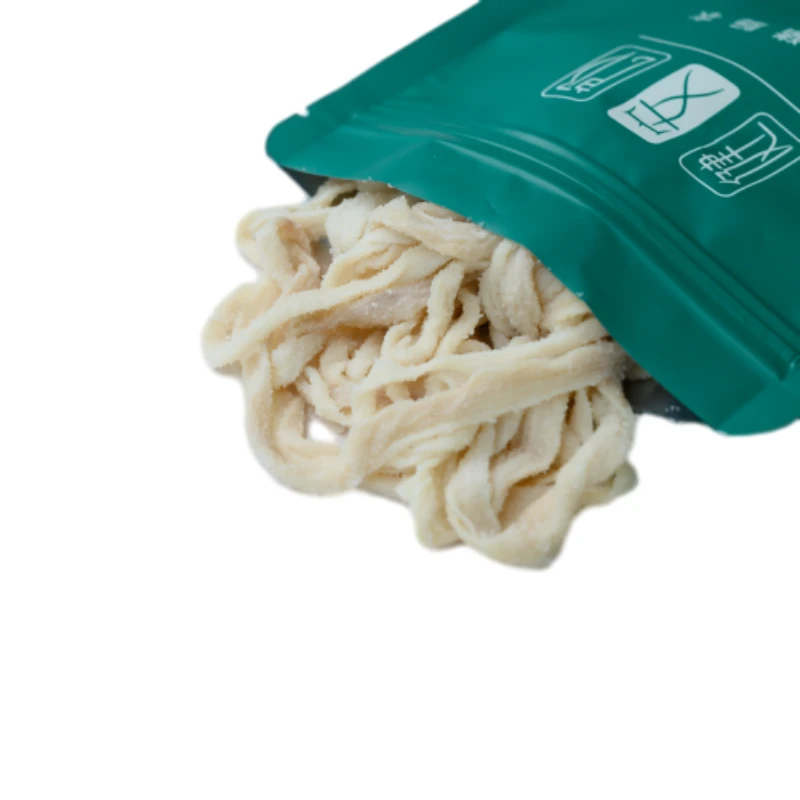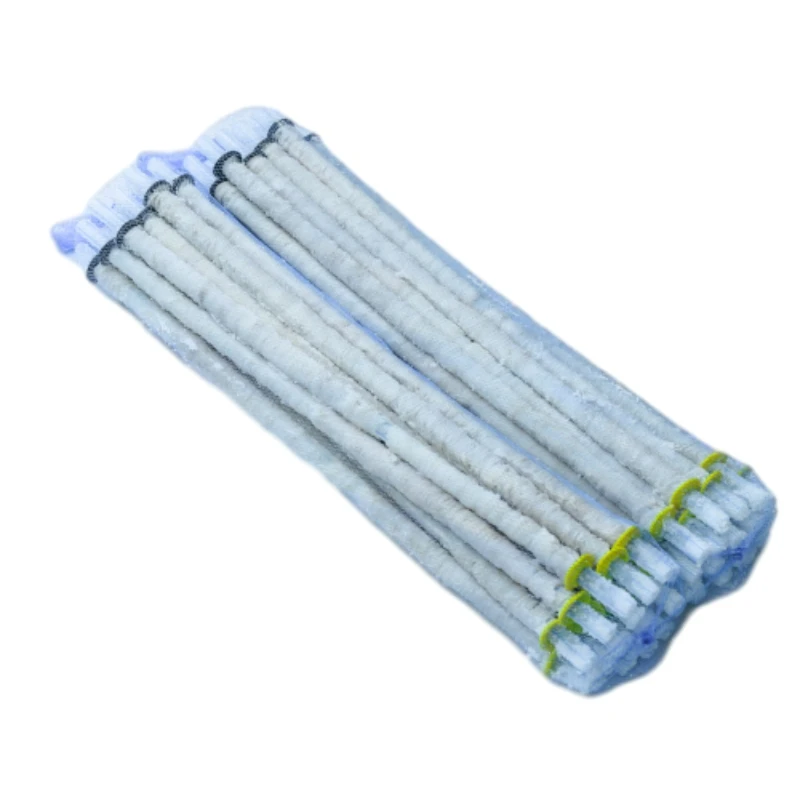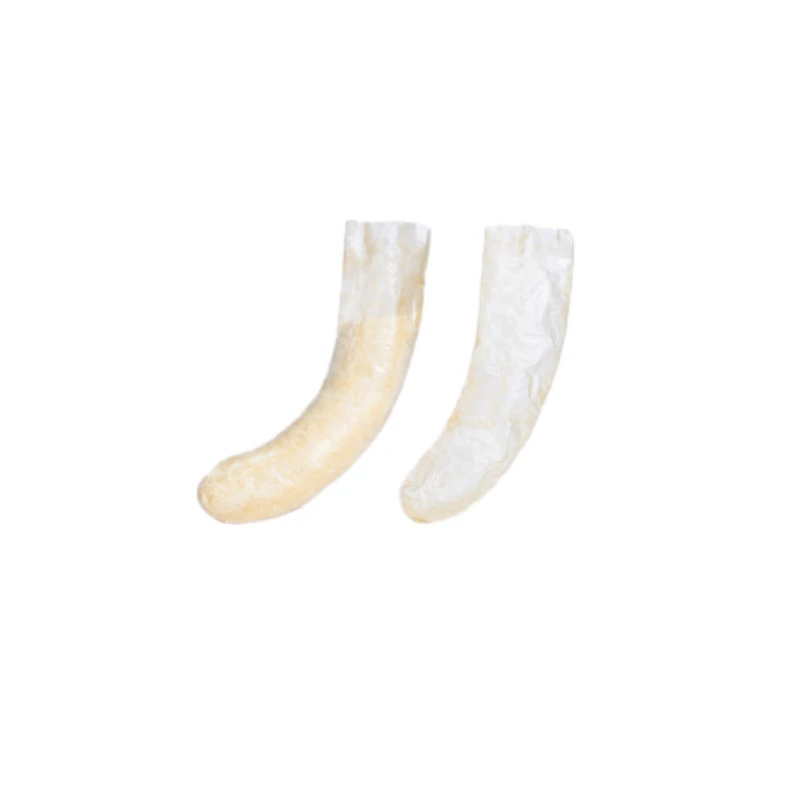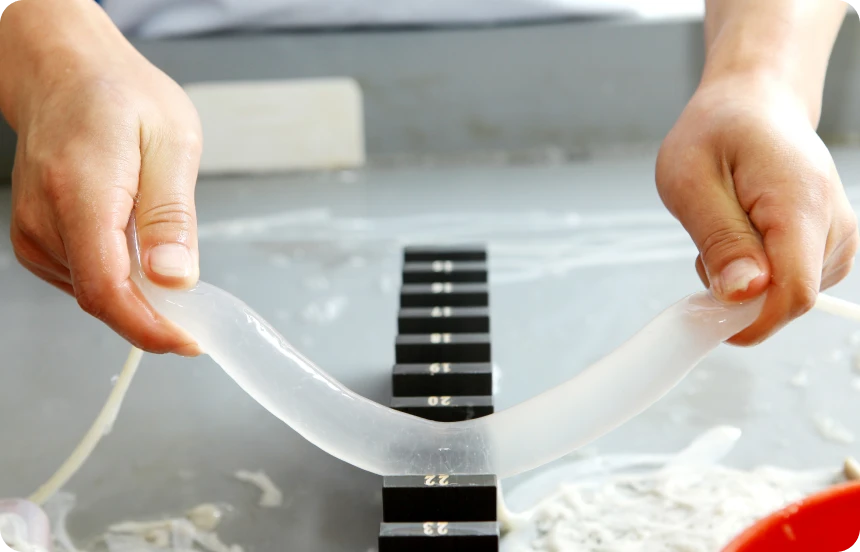Jul . 06, 2025 09:00
- Introduction to Sausage Casing: The Foundation of Quality Sausage Production
- Key Technical Advantages of Modern Sausage Casings
- Comparative Overview of Leading Sausage Casing Manufacturers
- Customization Options and Wholesale Solutions: Spotlight on 19mm Casings
- The Rising Demand for Dried Sausage Casing Service
- Application Case Studies: Sausage Casing in Action
- Future Trends and Final Thoughts on Sausage Casing Sausage Industry
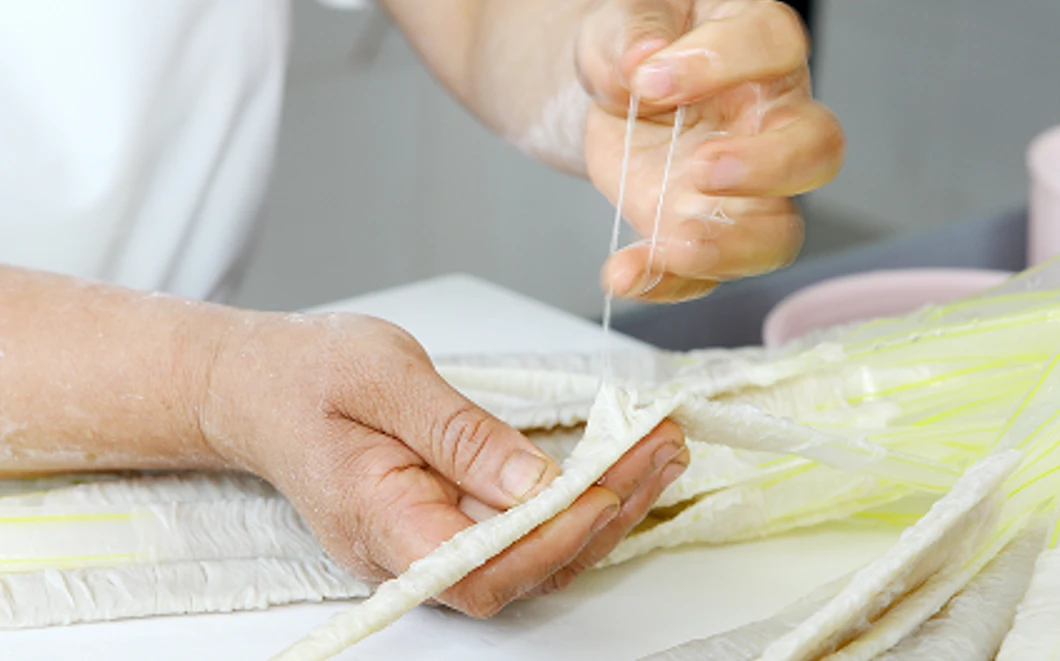
(sausage casing)
Introduction to Sausage Casing: The Foundation of Quality Sausage Production
Sausage casing stands at the heart of every meticulously crafted sausage, embodying centuries of culinary ingenuity and modern food technology. As both a protective shell and a defining feature of sausage products, the quality of the casing determines texture, taste, and shelf life. Statistically, over 3.2 million metric tons of sausages are produced globally each year, and approximately 94% of those rely on advanced sausage casing
solutions. From traditional natural casings to synthetic alternatives, the industry has evolved rapidly, responding to shifting consumer preferences and regulatory requirements. Advances in manufacturing have enabled casings with improved permeability, uniformity, and strength—attributes that define successful sausage production across large-scale operations and artisan butcheries alike.
Key Technical Advantages of Modern Sausage Casings
The transition from traditional to innovative sausage casing materials has introduced a suite of technical benefits. Natural casings, predominantly derived from animal intestines, remain prized for their authentic bite and ability to naturally curve and twist, but require meticulous cleaning and preparation. Collagen casings, on the other hand, offer impressive uniformity, which is crucial for automated production lines, reducing wastage by nearly 20% compared to older varieties. Furthermore, cellulose and plastic casings provide extended shelf life, increased production efficiency, and enhanced microbial safety. Advanced drying techniques facilitate consistent moisture levels, granting manufacturers control over the finished product's weight and texture. Moreover, with the help of innovative permeable membranes, sausage producers can customize smoke penetration and flavor infusion, maximizing appeal to global palettes while maintaining food safety standards.
Comparative Overview of Leading Sausage Casing Manufacturers
The competitive landscape in sausage casing production is shaped by a handful of international players, each offering distinctive products and service strengths. The following table presents a comparative analysis of key manufacturers based on product range, technical capabilities, customization, and global reach:
| Manufacturer | Main Product Types | Technical Advantages | Customization Options | Distribution Network |
|---|---|---|---|---|
| Viscofan | Collagen, cellulose, fibrous, plastic | Automated quality controls, high yield | Wide diameter/length range, branding options | Over 100 countries |
| Devro | Collagen, edible and non-edible | High uniformity, easy handling | Color, size, and smoke permeability customization | Global, with regional support |
| DAT-SCHAUB | Natural, collagen, synthetic | Sustainable sourcing, strict hygiene | Tailored casings for niche markets | Europe, Americas, Asia |
| Shuanghui Casings | Natural, dried, collagen | Competitive pricing, rapid fulfillment | Express customization, private labeling | Asia-Pacific, expanding globally |
In review, manufacturers differ not only in material science but also logistical responsiveness and commitment to customization, factors that are increasingly decisive for international buyers seeking reliable sausage casing sausage solutions.
Customization Options and Wholesale Solutions: Spotlight on 19mm Casings
Wholesale 19mm sausage casing remains a preferred size for producers targeting the mainstream and specialty sausage markets. This diameter is particularly suited for breakfast links, cocktail sausages, and European-style smoked varieties. With bulk purchasing channels, customers benefit from economies of scale, securing price reductions of up to 12% compared to smaller volume orders. Customization at this scale extends to length precision (reducing production downtime), printed branding, and even tailored permeability that accommodates varying filling mixtures—important for pork, beef, poultry, or plant-based formulations. The demand for reliable wholesale 19mm sausage casing prompted an expansion of dedicated service lines from all major suppliers worldwide. Custom-tailored packaging, labeling, and logistical services ensure a seamless supply chain to both industrial processors and boutique charcuteries.
The Rising Demand for Dried Sausage Casing Service
Dried sausage casing service is emerging as a vital component in the production of specialty and shelf-stable sausages. These casings are subjected to controlled dehydration methods, decreasing moisture to below 15% (by weight), which extends usable shelf life to around 12–24 months. This process not only enables efficient long-distance shipping but also reduces spoilage risks in fluctuating climates. Dried casings rehydrate rapidly without sacrificing elasticity or strength, meaning sausages maintain optimal snap and mouthfeel. The growing market for export-ready and artisanal dried sausage products has seen an annual increase of 8.5% in dried casing service requests according to industry analytics, driving manufacturers to scale up both their dehydration capacities and service offerings. Producers are now able to select casing varieties tailored for specific maturation durations, supporting the creation of salami, chorizo, and other distinct, culturally relevant sausages.
Application Case Studies: Sausage Casing in Action
Across global markets, sausage casing technology has enabled a variety of product breakthroughs. In Germany, for example, a leading processor adopted high-uniformity collagen casings for its bratwurst lines, achieving a 23% faster throughput and reducing splits during cooking by over 30%. In the United States, an award-winning breakfast sausage producer switched to dried, pre-tied natural casings, which reduced labor hours by 15% and improved end-consumer ratings of product texture. Meanwhile, an Asian manufacturer integrated wholesale 19mm sausage casing into its export lines, enabling efficient fulfillment of diverse market needs and increasing order volume by 5,000 tonnes annually. These applications demonstrate how the right casing not only preserves traditional flavor and appearance but also drives operational efficiency, consistency, and scalable growth.
Future Trends and Final Thoughts on Sausage Casing Sausage Industry
The sausage casing sausage sector is poised to experience further transformation as manufacturing capabilities evolve and consumers continue to seek out both authenticity and convenience. Anticipated trends include increased adoption of biodegradable and plant-based casings for the expanding vegan market, smart casings embedded with freshness indicators, and more extensive online procurement platforms improving traceability and customization on demand. According to forecasts, the global sausage casing market size is projected to reach $5.9 billion by 2027, driven by fast-growing segments such as dried sausage casing service and premium wholesale 19mm options. As manufacturers align their offerings with these new expectations, quality assurance, technological agility, and responsive customer service will determine competitiveness. Ultimately, collaboration between producers and suppliers to innovate casings for both classic and new applications will be the hallmark of sustained industry leadership.
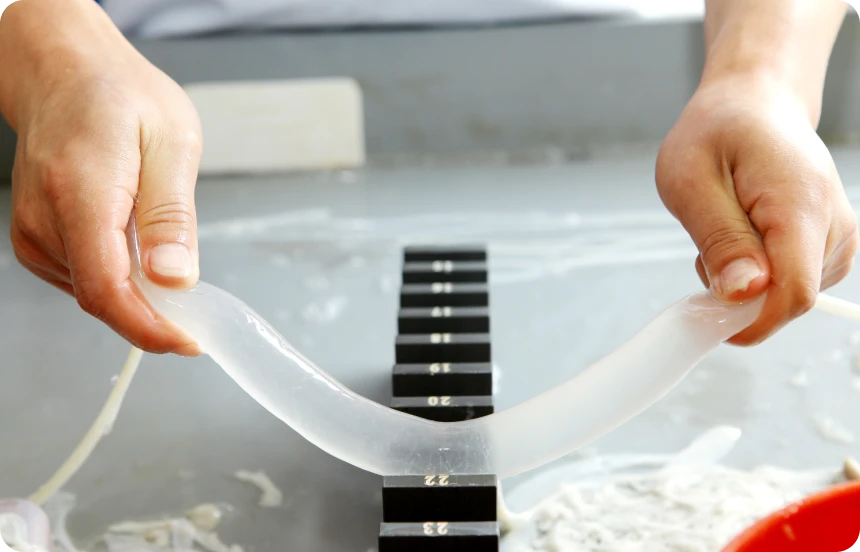
(sausage casing)
FAQS on sausage casing
Q: What is a sausage casing and why is it important?
A: A sausage casing is a thin skin, natural or synthetic, that holds the sausage mixture together. It shapes and protects the sausage during cooking. Casings also influence the texture and appearance of the final sausage.
Q: Can I buy sausage casing sausage in bulk?
A: Yes, many suppliers offer sausage casing sausage in wholesale quantities. Bulk purchasing can be more cost-effective for businesses or large events. Make sure to specify your preferred casing type and size.
Q: What is wholesale 19mm sausage casing used for?
A: Wholesale 19mm sausage casings are typically used for making smaller diameter sausages, like snack sticks or breakfast sausages. Buying wholesale ensures a consistent supply for production needs. These casings are popular with commercial butchers and food manufacturers.
Q: How does dried sausage casing service work?
A: Dried sausage casing service involves supplying pre-dried, ready-to-use casings for sausage making. This saves time and ensures consistent quality for producers. Services may include cleaning, drying, and packaging the casings.
Q: Are sausage casings safe to eat?
A: Most natural and edible synthetic sausage casings are safe to eat. If you are unsure, always check packaging or ask your supplier. Non-edible casings must be removed before consumption.


